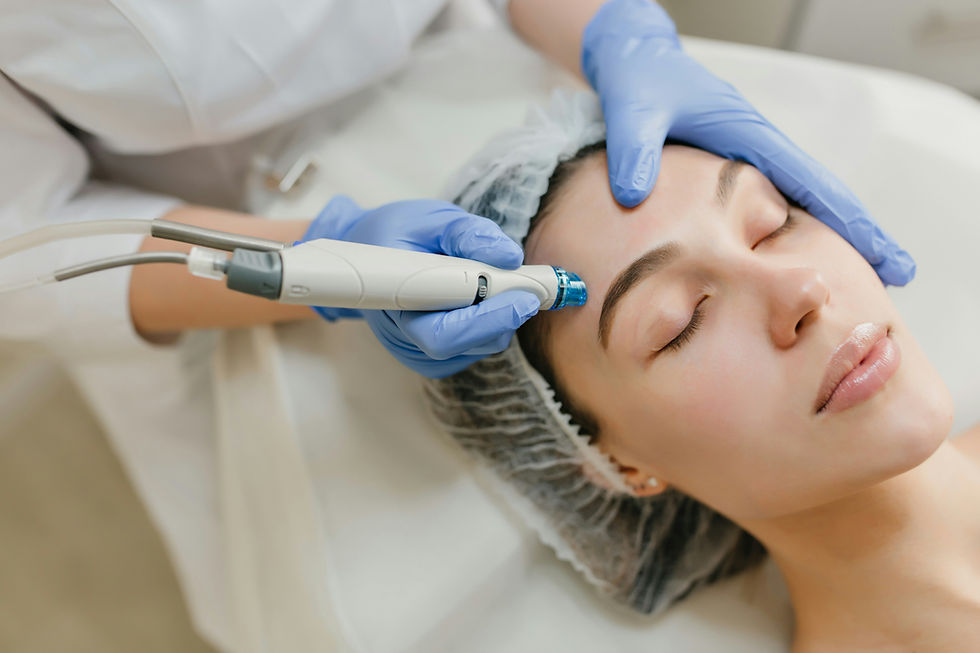What You Should Know About Sedation Dentistry
- anikapearlnecosia
- Nov 23, 2022
- 3 min read

During a dental appointment, a patient may be able to use sedatives to help them relax and remain calm. Sedatives can be administered before or during the appointment as laughing gas, oral sedation, or IV sedation. Visit Sedation Dentistry to learn more.
Oral Sedation
Whether you fear going to the dentist or are afraid of a particular procedure, oral sedation can help you get through the procedure without too much anxiety. While there are many different types of sedation, the most common type is oral sedation.
Oral sedation involves the administration of medications in the form of pills. These drugs slow down the brain activity rate, making the patient sleepy and relaxed. The medicines for oral sedation are often benzodiazepines, such as Xanax and Halcyon. They work by blocking receptors in the brain responsible for fear and anxiety. These medications are safer than barbiturates and have a short half-life.
Benzodiazepines are generally used for insomnia, panic disorders, and anxiety. They are not appropriate for patients with medical complexity. When you choose oral sedation for your next dental appointment, you should also be aware of the risks. For example, the drugs will cause you to have a tired feeling during the procedure and may result in foggy memories. You should discuss these risks with your dentist before the procedure.
IV Sedation
Often called sleep dentistry, IV sedation keeps you comfortable and relaxed during dental procedures. A licensed physician can administer IV sedation, but it is essential to know that certain precautions must be followed before you can receive it. To receive IV sedation, you must have a thorough medical exam before your appointment. Your dentist will also evaluate your medical history to determine if you are a good candidate.
Your IV sedation will be delivered through a small catheter into your bloodstream. Another dental professional will monitor your heart and breathing rates throughout the procedure. A topical numbing cream will be used to numb the needle's insertion area. Nitrous oxide, also known as laughing gas, can also be used to help calm you. Often used for dental procedures, nitrous oxide is a non-opioid analgesic.
Another benefit of IV sedation is that it helps patients cope with their fears. The American Dental Society of Anesthesiology recommends sedation for dental phobia patients. This helps patients overcome their fear and receive the dental care they need.
Laughing Gas
Laughing gas in sedation dentistry is a safe and effective way to reduce pain and anxiety during dental procedures. This sedative is safe for both children and adults. It is also safe for the lungs, heart, kidneys, and liver. Laughing gas is administered through a nasal mask, which mixes oxygen with nitrous oxide. First, patients breathe in oxygen to clear the gas from their lungs. Once the gas is cleared, the mask is removed, and patients breathe in air to expel the gas from their system.
Patients will feel a warm feeling all over the body and may feel lightheaded. In addition, they will have a tingling sensation and may even perspire, but they should be able to respond to dentist instructions. Children and adults who are anxious about dental procedures may benefit from nitrous oxide. The gas works quickly to relax patients and to make the procedures less painful. In addition, the gas is odourless and safe for both children and adults.
General anesthesia
Whether you're considering having dental work done or you're a patient who has had work done in the past, it's important to understand the difference between sedation dentistry and anesthesia. Sedation dentistry uses various techniques to keep you comfortable during your dental treatment.
General anesthesia is a type of sedation that an anesthesiologist administers. General anesthesia is used to prevent pain during dental procedures. A doctor will perform the procedure, and an anesthesiologist will monitor your vital functions.
For complicated dental procedures, such as wisdom tooth extractions, general anesthesia can be used. Sometimes, it may be used to help patients with severe dental phobia. It's important to discuss your options with your dentist.
Depending on your procedure, you may be given a sedative drug, such as Halcion or Valium. Both medications are used to relax your body and are typically prescribed for children or adults. There are different levels of sedation, and you'll need to meet with your dentist and anesthesiologist to determine which one is right for you. During the consultation, your dentist will ask about your medical history and any medications you may be taking.



Comments